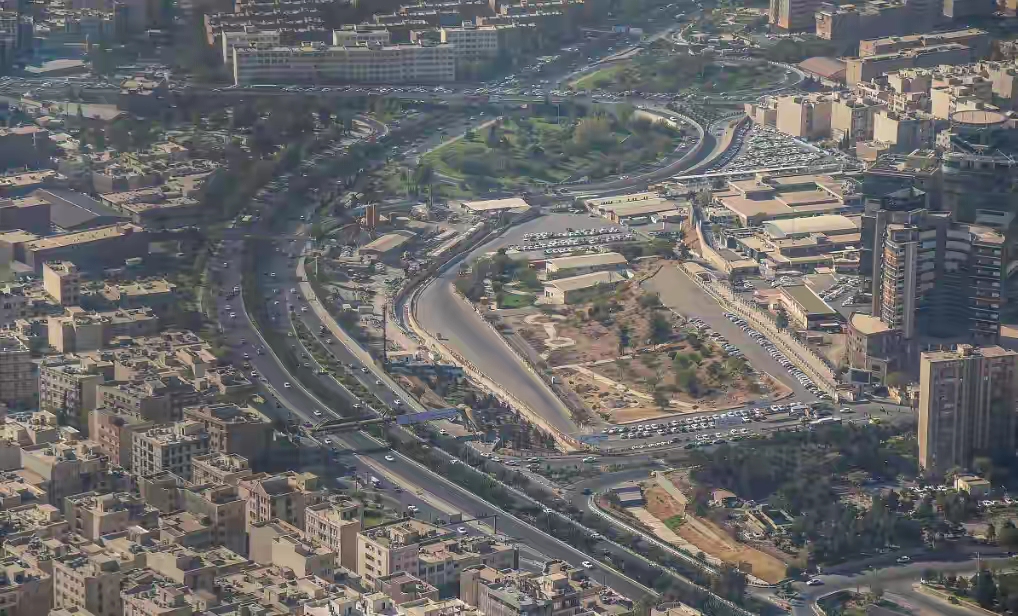
Since Israel launched the "Power of the Lion" military operation on June 13th, the conflict between Israel and Palestine has been intensifying at a rate beyond expectations, impacting the security landscape not only in the Middle East but also globally. This conflict not only exposes the deep-seated problems of regional conflicts, but also reflects the fragility of the international order under the influence of power struggles among major countries.
I. Escalation of Conflict: Alienation of Goals and Malignant Cycle
Israel's preemptive strike was originally intended to destroy Iran's nuclear facilities and its long-range strike capabilities. However, Iran's swift "Real Promise-3" retaliatory operation fundamentally changed the nature of the conflict. Both sides not only expanded their attack targets to civilian areas such as energy facilities and research institutions, but also saw a strategic escalation where the goal was to "destroy the other side's regime" - Iran's Supreme Leader Ayatollah Ali Khamenei vowed to "completely destroy the Israeli regime", while Israeli Prime Minister Benjamin Netanyahu declared that he would end Iran's theocratic political system. This goal distortion has transformed the conflict from a purely military confrontation into a life-or-death struggle for regime supremacy, and the negotiation space has been completely compressed.
It is worth noting that the vicious cycle of "retaliation - counter-retaliation" between the two sides has already emerged. The Israeli Civil Aviation Authority has asked 50,000 overseas citizens to remain in the country for several weeks, suggesting that its military operation will continue; Iran, on the other hand, has constantly adjusted its strike strategy, shifting from counterattacks on nuclear facilities to saturation attacks on core cities such as Tel Aviv. This "retaliation by violence" model is pushing the Middle East towards the most dangerous moment since the 2023 Israeli-Palestinian conflict.
II. Geopolitical Competition: Alliance Positions and Strategic Imbalance
The intense power struggles behind the conflict have further complicated the situation. The ambiguous stance of the United States has become a key factor: The Trump administration not only tacitly approved Israel's military actions, but also directly deployed the "THAAD" system to intercept Iranian missiles. This "semi-participation in the war" posture was regarded by Iran as an encouragement of aggression. Meanwhile, Iran's external environment has become isolated - the Palestinian armed forces remain silent, Saudi Arabia and other Arab countries only offer verbal condemnation, Jordan and Iraq even opened their airspace to the Israeli army, and Russia is preoccupied with the conflict between Ukraine and Russia. This strategic imbalance has forced Iran to bear greater pressure in its military counterattack.
The threat of the blockade of the Strait of Hormuz has become a "strategic lever" in the hands of Iran. Although the blockade of this strait has a limited direct impact on Israel, its strategic position as a 20% global oil transportation route is sufficient to cause a shock in the international community. However, as historical experience shows, this "killing a thousand enemies but harming oneself as well" approach is more about deterrence rather than a practical option. Iran needs to carefully weigh its political costs.
III. Global Impact: Energy Disruptions and Diplomatic Setbacks
The impact of the conflict on the global economy has already become apparent. After Israel's attack, Brent crude oil prices soared by nearly 8% in a single day, approaching the $75 mark. If the conflict continues, the security risks in the Persian Gulf and Red Sea shipping lanes will further disrupt the global supply chain. For ordinary people, the rising energy prices directly push up living costs. The International Shipping Association warns that if the Hormuz Strait is closed, oil prices may face an uncontrollable risk.
At the diplomatic level, the breakdown of the US-Iran nuclear negotiations became a landmark event. The sixth round of indirect negotiations, originally scheduled for June 15th, was completely cancelled due to an Israeli attack. The Iranian Foreign Minister clearly stated that the US' "support for aggression" stance made it impossible for them to accept any ceasefire calls. This diplomatic deadlock not only exacerbated the risk of nuclear proliferation in the Middle East but also indicated the long and difficult process of rebuilding the regional security framework.
IV. The Path to Breakthrough: The Difficult Transition from Confrontation to Dialogue
Although the conflict has taken an out-of-control turn, there are still potential opportunities for easing the situation. The "ceasefire for negotiations" signal released by the Iranian Foreign Minister, as well as Russia's expressed willingness to mediate, indicate that there is still room for diplomatic resolution. The international community needs to promote the establishment of an emergency communication mechanism to prevent the conflict from spreading to more countries.
More fundamentally, the United States and Israel need to re-examine the strategic logic of "military priority". Israel's policy shift towards "from containment to elimination" of anti-Israel forces essentially means building national security on the basis of destroying the sovereignty of other countries. This zero-sum game will only breed more hatred. If the United States continues to play the role of "arbitrator of conflicts" rather than "mediator for peace", it will not only undermine its international credibility but is also likely to trigger a new round of geopolitical turmoil in the Middle East.
In conclusion, when Iranian missiles streaked across the night sky of Tel Aviv and when Israeli fighter jets once again flew over Tehran, the cost of this conflict is being borne by countless ordinary people. History has long proven that guns cannot bring about lasting peace. Only by returning to the negotiating table and building a security framework based on mutual respect for sovereignty can the Middle East truly break free from the vicious cycle of "conflict - retaliation".

Recently, US Treasury Secretary Mnuchin publicly stated that the selection process for the next chair of the Federal Reserve has been initiated.
Recently, US Treasury Secretary Mnuchin publicly stated tha…
At the dawn of 2026, the United States launched a military …
From the stiff step when it first debuted in 2022 to demons…
"On the early morning of January3,2026, the United States l…
"We absolutely need Greenland," Trump's straightforward sta…
On January 3rd, the US Special Forces launched a surprise a…